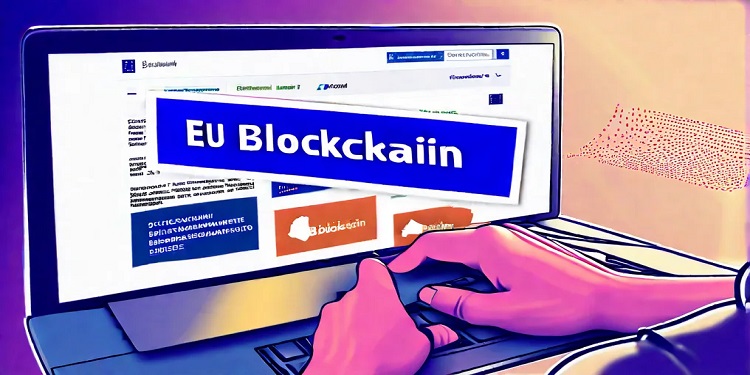Blockchain
EU supports Blockchain startups to tackle online disinformation

The European Union has allocated €1.8 million in non-repayable funding to support 15 European startups developing blockchain technologies to combat online disinformation and false identities. This funding, provided through the European Commission’s NGI TrustChain initiative, will provide each startup with up to $117,000 to tackle the proliferation of disinformation on platforms such as X (formerly Twitter), TikTok and Meta.
A diversified and competitive selection process
The third cohort of grant recipients represents ten European countries and was chosen from a competitive pool of 162 applicants. To date, the NGI TrustChain initiative has invested over €4.6 million in 43 companies, reflecting the EU’s commitment to promoting technological solutions that improve the integrity of online information.
Addressing pressing cybersecurity issues
Dr Muttukrishnan Rajarajan, professor and director of the Institute of Cyber Security at City, University of London, stressed the urgency of tackling misinformation, hate speech and online harm, especially in a year when nearly half the world’s population votes in elections. He noted that TrustChain startups are leveraging blockchain, identity, privacy and interoperable decentralized technologies to build public trust in online activity.
Increasing trust in online information
Sean Kane, co-founder and chairman of blockchain startup network F6S, highlighted the prevalence of false and misleading information, with only 60% of people trusting information online. Kane said the latest grants would empower Europe’s leading new blockchain and identity startups to foster trustworthy discussions in Europe’s digital public spaces.
Start-ups Funded
Startups receiving funding under the EU programme include:
ZKorum (France)
AI-MetaBloQ (Greece)
Compellio (Luxembourg)
Forkbomb BV (Netherlands)
Enismaro (Italy)
Arsys Internet (Spain)
Acurraent UG (Germany)
In Trade 4 You (Italy)
QX by Qpick (Poland)
Digital Democracy in the World (Sweden)
Pavlos Efraimidis (Greece)
City and Me doo Nis (Serbia)
Gheorghe Asachi Tech, University of Iasi (Romania)
SecureOpinion (UK)
Neuron AI (Greece)
These startups were selected based on their innovative approach to using blockchain technology to increase trust and security in online interactions.
Guidelines for the EU elections
In response to the growing wave of online disinformation, the EU introduced new election guidelines earlier this year for online search engines and social media platforms. These guidelines were implemented ahead of the June parliamentary elections and included measures such as establishing in-house election teams, promoting official election information, and adopting strategies to mitigate the risks posed by generative AI. These steps aim to ensure the smooth functioning of the democratic process and protect the integrity of elections.
The Future of Blockchain in the Fight Against Disinformation
The EU’s investment in blockchain startups is a significant step towards solving the challenges of disinformation and false identities in the digital age. By supporting innovative technologies and fostering cross-border collaboration, the EU aims to create a more trustworthy and secure online environment. The continued development and implementation of blockchain solutions will be crucial to building public trust and ensuring the reliability of online information in the years to come.
